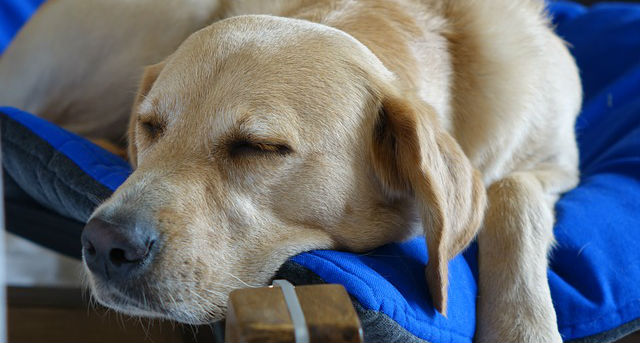My dog can’t hold urine overnight. What is the cause and treatment?
Original Question: For the last year or so, Corky has needed to get up in the middle of the night to pee. I understand this is probably normal for a dog his age, however even after my husband lets him out, he wines incessantly and has a lot of trouble falling back to sleep. My husband has resorted to feeding him in the middle of the night and that seems to calm him sometimes. What could be the problem? He is healthy in every other way. - Robin
 Jun 17, 2018
Jun 17, 2018
Hi Robin,
It’s hard for me to know why your dog can’t hold urine overnight but I can give you a few ideas to start with. The fact that the urinating is occurring at night suggests that your dog is peeing too often. We call this symptom Pollakiuria. There are a few conditions that cause it and some are a urinary tract infection, diabetes, Cushing’s disease, kidney disease, among others.
In the case of a urinary tract infection, there can also be discomfort and difficulty sleeping as you mention if there are concurrent conditions with the bladder such as a bladder stone, a bladder mass, or inflammation from the urinary tract infection. My recommendation is to have your veterinarian perform a urinalysis and a culture and sensitivity test on the urine. It will help determine if there is an infection or crystals that could indicate stones or abnormal cells. If these tests are negative, I move to imaging of the bladder (an X-ray) and urethra to determine the cause.
Other conditions that cause excessive water intake and urinating in the night can easily be evaluated by performing a urinalysis and blood work. I would recommend you consider this as the next step if a urinary tract infection is not found.
Thanks for your question and good luck!
Dr. Clayton Greenway


Disclaimer: healthcareforpets.com and its team of veterinarians and clinicians do not endorse any products, services, or recommended advice. All advice presented by our veterinarians, clinicians, tools, resources, etc is not meant to replace a regular physical exam and consultation with your primary veterinarian or other clinicians. We always encourage you to seek medical advice from your regular veterinarian.

